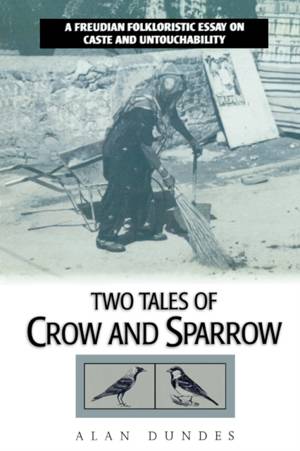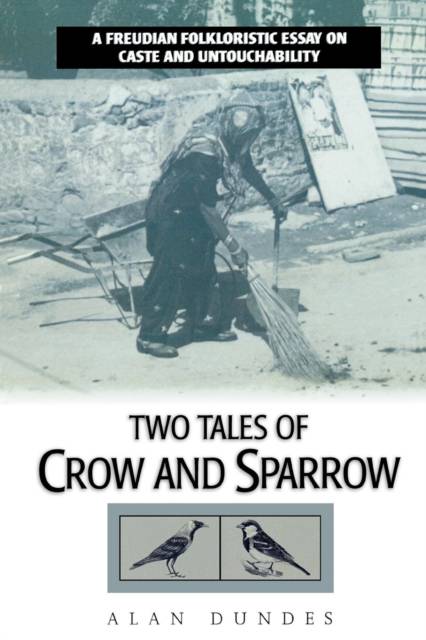
- Afhalen na 1 uur in een winkel met voorraad
- Gratis thuislevering in België vanaf € 30
- Ruim aanbod met 7 miljoen producten
- Afhalen na 1 uur in een winkel met voorraad
- Gratis thuislevering in België vanaf € 30
- Ruim aanbod met 7 miljoen producten
Zoeken
Two Tales of Crow and Sparrow
A Freudian Folkloristic Essay on Caste and Untouchability
Alan Dundes
Paperback | Engels
€ 88,45
+ 176 punten
Omschrijving
This provocative book by a leading folklorist offers a new analysis of caste in India, focusing on the rationale underlying the customs surrounding untouchability. Drawing on clues contained in two fascinating folktales, Alan Dundes goes beyond Dumont's classic Homo Hierarchicus in deconstructing the pervasive pollution complex that prevents millions of individuals from entering temples or drawing water from community wells. His graceful and erudite explanation of caste also illuminates the mysterious worship of the sacred cow as well as sati/suttee, or widow burning. The author concludes by relating caste to the theory of marginal survival, drawing on Gypsy concepts of pollution. This controversial book offers a fresh perspective for anyone interested in India, folklore, and psychoanlytic anthropology_a detailed case study documenting how folklore, as a source of native categories and symbols, can yield unique insights into the unconscious functioning of a culture through time. In this comprehensive textbook, renowned philosopher J. N. Mohanty examines the range of Indian philosophy from the Sutra period through the 17th century Navya Nyaya. Classical Indian Philosophy is divided into three parts that cover epistemology, metaphysics, and the attempt to transcend the distinction between subject and object. Mohanty focuses on the major concepts and problems dealt with in Indian philosophy, including ethics, social philosophy, law, and aesthetics. Students of Indian philosophy at every level will find this a rich and rewarding text.
Specificaties
Betrokkenen
- Auteur(s):
- Uitgeverij:
Inhoud
- Aantal bladzijden:
- 176
- Taal:
- Engels
Eigenschappen
- Productcode (EAN):
- 9780847684571
- Verschijningsdatum:
- 20/11/1997
- Uitvoering:
- Paperback
- Formaat:
- Trade paperback (VS)
- Afmetingen:
- 148 mm x 228 mm
- Gewicht:
- 258 g

Alleen bij Standaard Boekhandel
+ 176 punten op je klantenkaart van Standaard Boekhandel
Beoordelingen
We publiceren alleen reviews die voldoen aan de voorwaarden voor reviews. Bekijk onze voorwaarden voor reviews.








